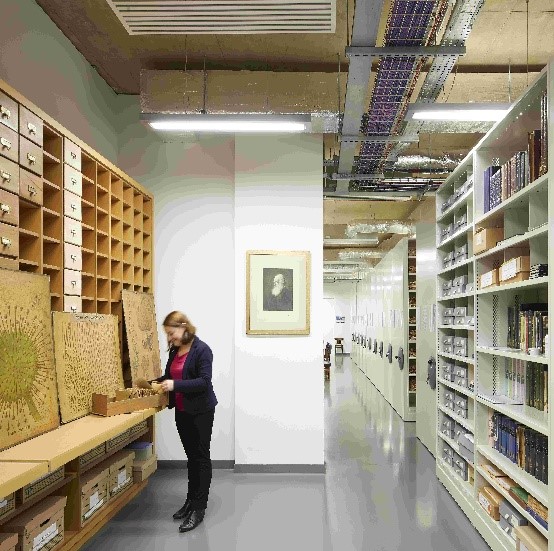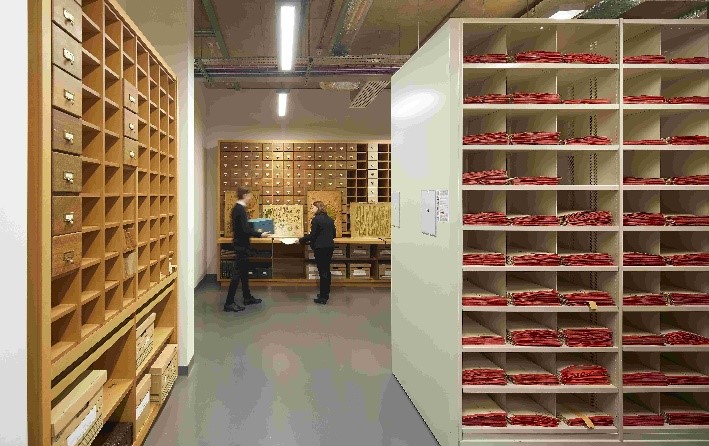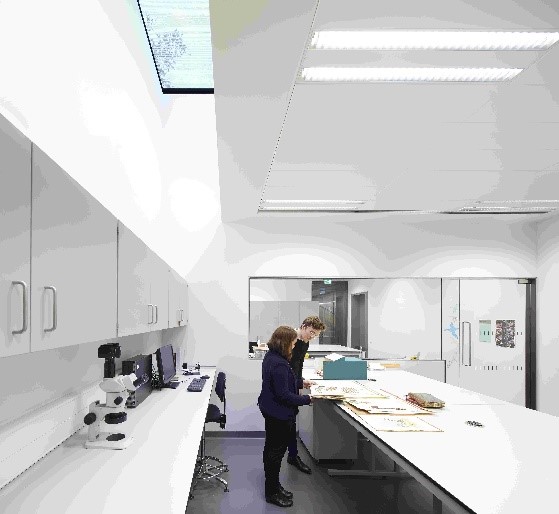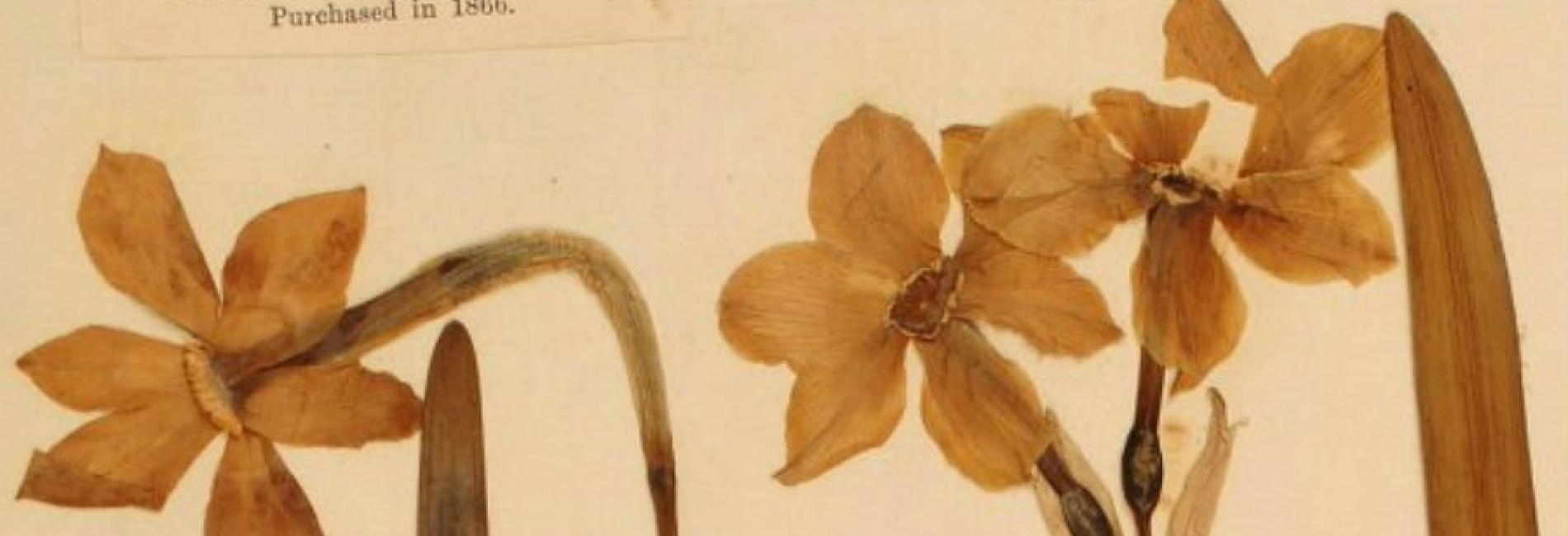Information
The Herbarium is embedded within the Department of Plant Sciences.
Juliet Anderson, Collections and Digitisation Assistant
Mar Millan, Collection Coordinator
Contact
For research enquiries: https://forms.office.com/e/WzXuB09UW7
For other requests: herbarium@plantsci.cam.ac.uk
The fourth largest collection in the UK, the Cambridge University Herbarium is a rich resource for many scientific and historical fields of research, from evolutionary genetic studies to present day conservation science and investigations into colonial history and the development of scientific ideas about the natural world.
The Herbarium has an associated and important botanical library and collections of botanical illustrations and artwork, photographs, photographic slides, and microscope slides.

The Herbarium is especially rich in ‘type’ specimens, the original specimens used to describe new species (numbering an estimated 50,000 individual specimens), specimens of historic importance, and British plants.
Particularly notable collections from the 19th century include the collections of notable individuals such as John Stevens Henslow, Charles Darwin, Alfred Russel Wallace, Nathaniel Wallich, John Lindley, David Douglas, and Richard Spruce.

Current projects include (but are not limited to):
- Butterflies through Time: using wildlife of the past to guide conservation of the future, Esmee Fairbairn funding, led by the University Museum of Zoology and Department of Zoology, 2019-2022
- Genetic loss in UK flora over the past 200 years, after successful pilot project with an MPhil student in the Department of Plant Sciences 2018-19, NERC grant submitted, led by University of Edinburgh
- Snow algae – are they the most abundant photosynthetic organisms in terrestrial Antarctica?, NERC funded, led by Department of Plant Sciences and British Antarctic Survey, 2019-present.
- Physiology and stable isotope ecology of moss growth for modelling spatial and temporal climatic signals, NERC funded, led by Department of Plant Sciences 2018-present.
- Phylogenetic revision of the family Neuradaceae, led by Department of Plant Sciences, 2018-to present.
- Growing Networks, Getty-funded project, led by the Fitzwilliam Museum (non-University of Cambridge partners including Royal Horticultural Society, Royal Botanic Gardens Kew, Natural History Museum, and Royal Botanic Gardens Edinburgh)
- Mobile Museum: Economic Botany in circulation, AHRC-funded project, led by Royal Botanic Gardens Kew and Royal Holloway University of London (non-University of Cambridge partners include World Museum Liverpool, National Museum Wales, and Glasgow Museum)

Future priority areas and areas of potential for research collaboration include (but are very definitely not limited to):
- Cambridge Digital Library and Cambridge Digital Humanities
- Darwin Correspondence Project and UL Special Collections
- Cambridge Conservation Initiative and IUCN
When proposing a collaboration, please give as much time as possible, due to the Herbarium’s limited capacity. However, the Herbariumcan be relatively responsive if input needed is limited – or if additional resource is available. For research work, if you need student input, please time your project to the academic terms. For projects to start in Michaelmas term for undergraduates, and Summer Students to be applying for funding in Lent term, a year in advance would be ideal to be able to pitch projects to students at appropriate times in the academic year.


